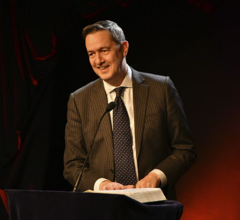
Ce blog est une initiative personnelle destinée aux gens qui s'intéressent à la spiritualité, ou à ceux qui souhaitent en apprendre plus sur la scientology, à ceux qui pensent que la liberté de conscience est un droit fondamental qui mérite d'être défendu, à mes coreligionnaires ou encore à ceux qui sont curieux...
Our World est un magazine distribué à une dizaine de milliers d'exemplaires auprès des institutions européennes. Il parait uniquement une à deux fois par an (jusqu'à maintenant en tous cas), et en 8 années d'existence, 33 chefs d'Etat ont déjà écrit pour le magazine. Pour leur dernière édition, publiée en ce mois de décembre, consacrée au rôle de la religion dans la société moderne, j'ai écrit un article intitulé "Freedom of Religion or Belief, why it matters". C'est en anglais et j'en suis désolé pour les non-anglophones voire non-anglophiles...
Cependant voici l'article en anglais, tel qu'il apparait dans la publication :
Recently, I was having a chat with the excellent Reverend Bill E. Swing, founder of United Religions Initiatives (URI) and former Episcopal Bishop of California, and I was surprised when he told me: “I’m glad you are doing what you do for religious freedom, as before, I thought that religious freedom was only an issue for the agenda of the far-right wing evangelical Christians.” Actually, and indeed, many advocacy groups on religious freedom, or freedom of religion or belief (FoRB) as we say in EU, are only focused on the rights of their own religious community, even when sometimes they pretend to fight for FoRB for all. Or sometimes they focus on the rights of several religious communities, but to the exclusion of others.
I consider that it is normal and sane to defend the right to FoRB of your own community. I’m a Scientologist and I will definitely fight for the rights of Scientologists to practice their religion freely and I expect the same from Muslims, Christians, Sikhs, Bahai’s and all others to defend their own religions. But it’s not enough and if it is done in a way that excludes some other religious communities, it becomes even counterproductive and detrimental to the very basis of FoRB itself.
The strength of the right to FoRB stems from its universality.
We, basically all nations belonging to the United Nations, recognized it as a fundamental and universal right. Universal means everywhere, and for everyone, whatever their faith, belief or conviction is. It goes as far (and actually it’s not so far) as applying to non-believers to the same extent it applies to believers. Freedom of belief is also the right of atheists to be atheists, agnostics to be agnostics, and the right to change religion whenever you want and for whatever belief you choose. And with that, your right to FoRB is protected or at least should be.
Now the corollary of this is that the greatest threat to FoRB is to strip it of its universality. And that is what happens when some groups or activists defend only their rights or the rights of a few to the detriment or the exclusion of others. The universality of FoRB declines, and it becomes finally a special interest right or even a vested interest right, and then its power shrinks in value. This is the direction of no FoRB at all. We could even say that when one religion is excluded from FoRB, then there is no FoRB, as this right only exists because it is universal. It’s its essence. That means that each of us should defend the right to FoRB of each one of us, without even considering our own affinity or lack of it to take into account.
One day I spoke to a Russian Orthodox Old Believer Bishop in Moscow. He was one of the most conservative Christian Orthodox I ever met in my life. For him, theologically, I was a devil worshipper. Nevertheless, Old Believers have known persecution for centuries. Maybe that is why he told me that whilst he was very opposed to Scientology beliefs, he would fight for our rights to practice freely our religion and would always oppose any interference from the government in this. That is what it takes to be a real advocate for FoRB. A bit of courage, even vis a vis your own beliefs.
Another thing that should not enter into account is the social hostility that a religious community can face in a particular country. It was (and unfortunately is still) such an issue that the UN Human Rights Committee had to tackle it in its General Comment 22 on Freedom of Thought, Conscience or Religion:
Article 18 protects theistic, non-theistic and atheistic beliefs, as well as the right not to profess any religion or belief. The terms “belief” and “religion” are to be broadly construed. Article 18 is not limited in its application to traditional religions or to religions and beliefs with institutional characteristics or practices analogous to those of traditional religions. The Committee, therefore, views with concern any tendency to discriminate against any religion or belief for any reason, including the fact that they are newly established, or represent religious minorities that may be the subject of hostility on the part of a predominant religious community.
Finally, there is also a practical aspect when it comes to advocacy, to focus on defending the right to FoRB of others. This aspect was summarized by a young Muslim lady, participating in the Ministerial for Religious Freedom in Washington this summer, the biggest ever event on this topic, organized by the US State Department but with 80 National delegations participating. She was commenting on the benefits she got from participating in the International Religious Freedom Roundtable in Washington, and she said it this way: “Before, I was always defending the rights of Muslims. And in our society, it was very, very tiring. I was exhausted. When I joined the roundtable, I started to defend the rights of Christians or the ones of Scientologists, and I discovered that it was much more rewarding. Then I stopped exhausting myself defending Islam, as I realized that I could count on Christians and Scientologists to defend them.” And that is the way it works. FoRB to be for all, or not to be.
Eric Roux
Current Vice-President of the European Office of the Church of Scientology for Public Affairs and Human Rights and a well-known International Activist for Freedom of Religion and Belief. He has authored several books and articles on that topic. He is also currently serving as President of the European Interreligious Forum for Religious Freedom.
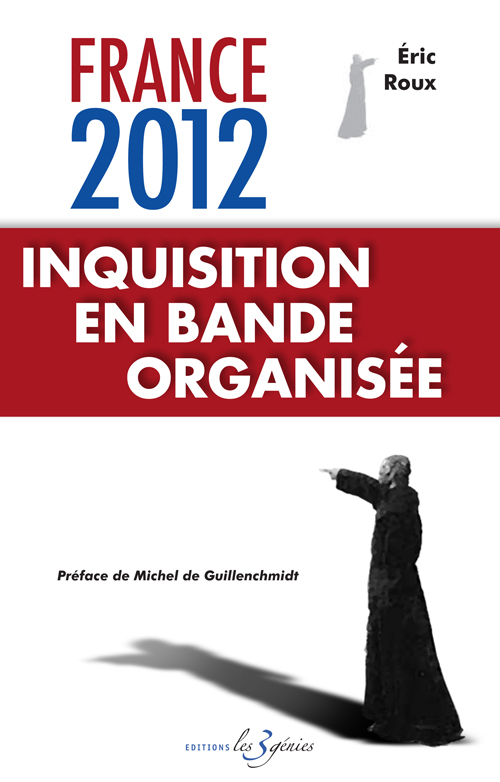
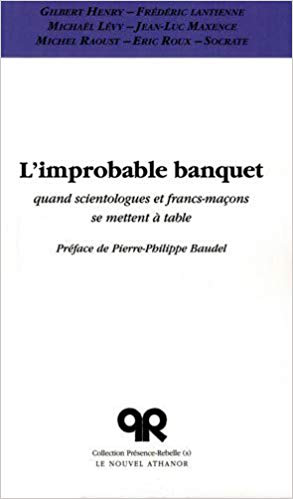


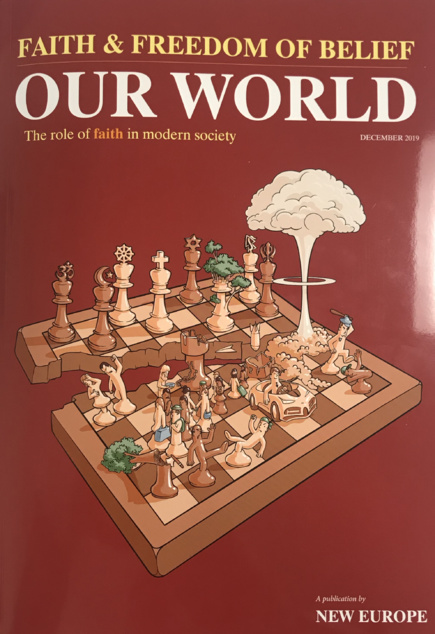
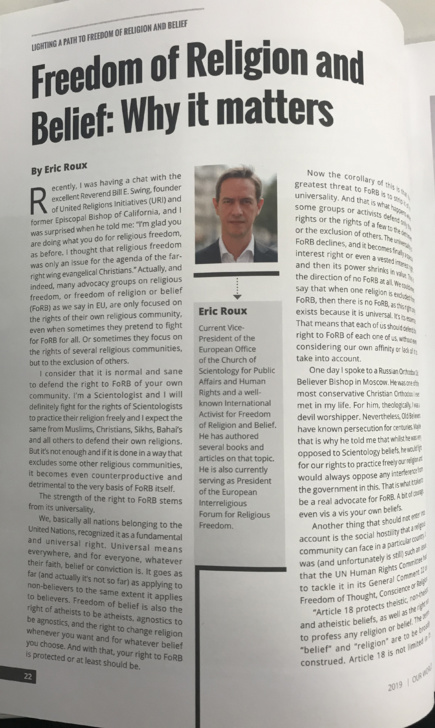
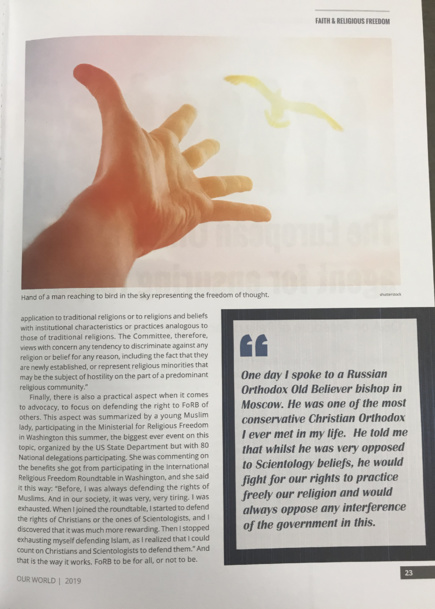
Liberté de conscience
Commentaires (0) | Permalien